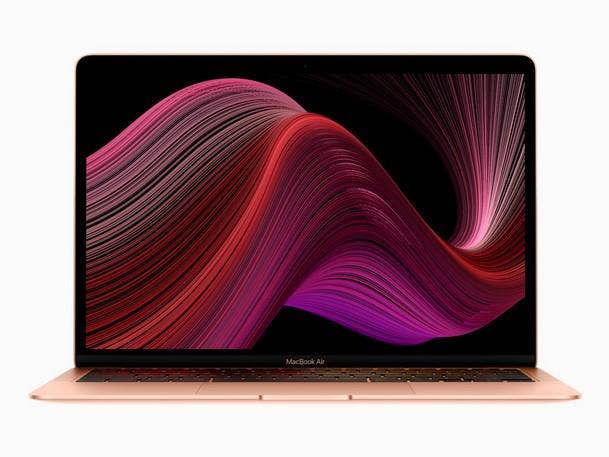Apple Solidifies Plans To Launch Its Own Chips For Macs: Report
Apple-designed processors are reportedly set to arrive in Macs starting in 2021, potentially displacing Intel chips in some cases.

Apple is poised to debut internally developed processors in its Mac line in 2021, with the chips coming as variations on the processor for the next iPhone, Bloomberg reported.
An Apple-designed, Arm-based chip is expected to launch in "at least one Mac" during the year, according to the report.
[Related: 5 Signs Apple Wants To Make More Of Its Own Chips]
The chip’s design will reportedly be based on the forthcoming A14 processor for the next iPhone models--expected this fall or later--but could offer significantly greater performance than the iPhone version with 12 cores expected. Apple's current-generation A13 processor for the iPhone 11 lineup has six cores.
Reports over the past few years have suggested that Apple has been working to develop its own Arm-based processors for its Mac portfolio, which would displace Intel processors. In February, a 2021 Mac launch with Apple-designed chips was predicted by Ming-Chi Kuo, an analyst at TF International Securities who has frequently made correct Apple forecasts in the past.
Intel declined to comment when reached by CRN on Thursday. Apple did not immediately respond to a request for comment.
"I don't expect Apple to completely displace Intel in its PC lineup at once, but I am expecting some select notebooks, maybe the entire 'Air' line, to move over," said Patrick Moorhead, president and principal analyst at Moor Insights and Strategy.
"In the grand scheme of Intel's business, I don't think it's a very big deal as Macs are the lowest priority business at Apple and we could see share decline,” Moorhead told CRN. “Plus, Intel's strategy is more than just PC CPUs--it is more focused on datacenter and broad compute engines from GPU, ASIC, FPGA and AI accelerators."
Apple is currently developing three processors for its Mac line, and processors with more than 12 cores are being explored for launches further out, Bloomberg reported.
"I think the bigger news around this chip replacement is the long-running idea to switch to Arm on the Macs, and make native iOS code a possibility. One app store, different form factors, same apps and possible binaries. This was Microsoft's/Bill Gates' dream that never quite got there. Apple could even get there before Google, and their long-rumored next OS platform," said an executive at a solution provider that partners with Apple, who did not want to be identified.
"I suspect we will still have some Intel-based Mac Pros on the high end for now, and perhaps Arm-based A14 chips Macs in the low-end MacAir lineup. It would further boost the battery time. They could also run Intel emulation on the Arm chips for the short term as well, to give folks more time to recompile all the heavy Mac apps and get the macOS ready," the executive said.
The Cupertino, Calif.-based is believed to be interested in developing its own processors to reduce its dependencies on suppliers. Along with device timetables not always lining up with those of suppliers, manufacturers such as Apple are continuing to grapple with CPU shortages from Intel that have constrained device production.
Apple has accounted for roughly 5 percent of Intel's annual revenue, according to a previous Bloomberg analysis. Apple started using Intel processors for the Mac line in 2006 in a move away from PowerPC processors.
Apple already leverages microprocessor designs from Arm in its A-series processors for iPhone and iPad. The company's desire to do more chip design in-house is no secret, as Apple paid $1 billion last summer to acquire Intel's 5G modem business.